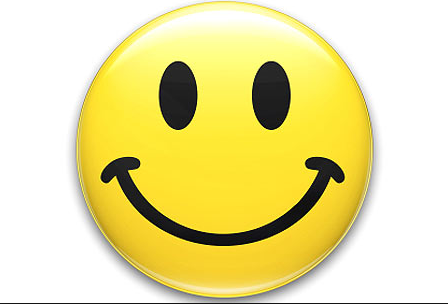Being happy is everyone’s goal. Yet, in making it a goal, we miss the joy that can accompany us along the way. I learned this years ago.
When my second child was born, he had perfect Apgar Scores and was, according to the discharge nurse, the most beautiful of babies. I was smitten. His large blue eyes, head of soft blond hair and chubby, healthy physique filled my heart with pride, joy and love. It was instant.
I was on the path of perfect motherhood. First a fun, easy, beautiful and engaged daughter, then, 15 months later, her twin in the male version.
But life has a way of surprising us, and mine took a 90 degree turn.
At ten months, my son was not walking; not even pulling up on furniture to stand on his rosy, pudgy feet. My daughter walked early, but science tells us that boys take a little longer to mature than girls, so I accepted it. A study done in 2013 revealed that it takes men longer to mature because the female brain establishes connections faster than the male brain.
He crawled by bending his right knee and pulling himself along as his left leg dragged behind like a fallen log. When I picked him up, he was floppy, and then he would arch his back rigidly. I almost dropped him several times. To sit him up, I propped pillows all around him. He tucked his thumbs into his fists for stability.

My son finally met most of his initial milestones (walking, out of diapers, first word) by age 3 ½. But his speech was all vowels.
When I enrolled him in Kindergarten at our neighborhood school, they wanted him to speak with a computer or in sign language. They wanted him in Special Ed—just not there.
I took him to a leading pediatric neurologist.
“Your son will be half of his life behind—or more,” he explained.
I am not one to cry easily, but that day, I sobbed uncontrollably in the parking lot, all the while hugging my son tightly and telling him between gasps that I would do anything to help him be normal in the world.
Well, the world can be tough.
I suffered through the stares in the grocery store.
My son would say something like, I on ee-in (I want wheat thins). I understood him perfectly, as did his sister. But most people didn’t.
“What’s wrong with him?” a child would ask their mother when hearing his words.
“Let’s go,” the mom would reply and quickly steer the child away. My son would say I (Hi) and wave. He was treated as though he had a communicable disease.
What the world failed to notice was the fact that he was happy. All the time.
Regardless of what came across his path, he laughed, smiled, played and loved. He lived in the moment.

I was sitting at home one day, feeling sorry for him as I wondered what his future life would look like. I was also feeling sorry for myself, and guilty for not bearing a perfect child.
But then something happened. He climbed up on the couch next to me, hugged me and said,
I looovvvv ewwwww.
He only knew love and happiness and, to this day, at age 25, he is still that way.

Raising my son was a challenge and a joy. I had obstacles thrown on my path and rays of light too.
As I reflected over the years, I realized that when I was with him, I laughed more, I paused to play, I engaged in the now and I was always happy. He didn’t care what others think, so why should I? This thought has shaped the way I interact with others and help people and companies in the working world.
When I work with people who are miserable in their jobs or careers, I think of the lessons I have learned from my son. And, because of my son, I guide professionals and companies in a completely different way.
It doesn’t matter if professionals went to Harvard or Stanford. I don’t care if they earn several million dollars a year. It doesn’t affect me if a company is the largest in the world. There are still many unhappy people at work. According to a rolling average of employee engagement by Gallup Poll, we average between 30-35% engagement in our work. We have a long way to go.

So what can we do that is simple and practical and easy to implement in order to get us a little closer to happy? What can we learn from the happiness of people like my simple son?
When we improve our own wellness, we can, in turn, radiate joy into our work, our place of employment and our relationships.
Here are simple actions we can take, or states of mind that we can develop and that will help us to be happier today, tomorrow and for the rest of our lives. I learned them from my son.
HAPPINESS EXERCISES
· Remember something happy from your childhood. It may sound silly, but it is as children that we figured out who we are and what we love.
· Know that you are unique, and that you have something special to offer the world that no one else possesses.
A young child from Lithuania drew this map of his happiness.

His love is music; it is his world. Even the sun sings to him.
· Chill out. Don’t try to control every moment of your life. Let it unfold.
· Don’t absorb the stress around you.
· Think of good feeling thoughts when you feel stuck.
· Get a cup of your favorite coffee or tea to improve your mood.
· Be kind to yourself. No guilt.
· Trust your intuition; it always guides you.
· Get more sleep.
· Be lazy sometimes.
· Take inspired action only.
· Smile.
· Believe in the impossible. Not the improbable.
· Let happiness in.
· Start your day with an appreciation of what is and what is to come.
You will be amazed at how you will begin to live in the moment, be more productive and, guess what? You will be happier!
Side note: My other son, 2 years younger, wrote a college paper about how every family should have a disabled child. If so, we would all be nicer, more accepting of others, less judgmental, and we would have a global community of care and appreciation. He is a very happy young man. Probably because of his brother.


